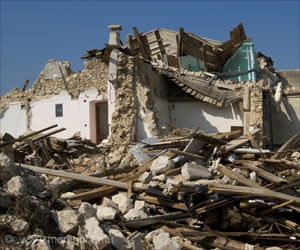Almost two million women of reproductive age have been affected in Nepal. Of these, about 126,000 pregnant women are in urgent need of clean delivery.

"About 2,100 women may suffer from obstetric complications over the next month alone. UNFPA estimates put about 40,000 women of reproductive age - including those at camps for the displaced -- at increased risk of sexual violence," the statement said.
UNFPA has pledged support to IPPF’s member association, the Family Planning Association of Nepal (FPAN), to expand and strengthen mobile medical camps while safe delivery and reproductive health kits, as well as dignity kits which contain essentials including sanitary pads, have also been provided.
So far, IPPF along with FPAN volunteers and staff have mobilized three mobile teams and one referral unit. These mobile teams have served more than 1,400 persons in need by providing counseling, consultation examination by doctor and medicines.
This has been done through ten different locations in some of the hardest-hit areas, including Bhaktapur, Kavre, Lalitpur, Sindhupalchok and Kathmandu districts.
"Pregnant women and new mothers are often ignored in the aftermath of a disaster, but they are among the most vulnerable and at risk populations," noted Giulia Vallese, UNFPA representative in Nepal.
Advertisement
Source-IANS












